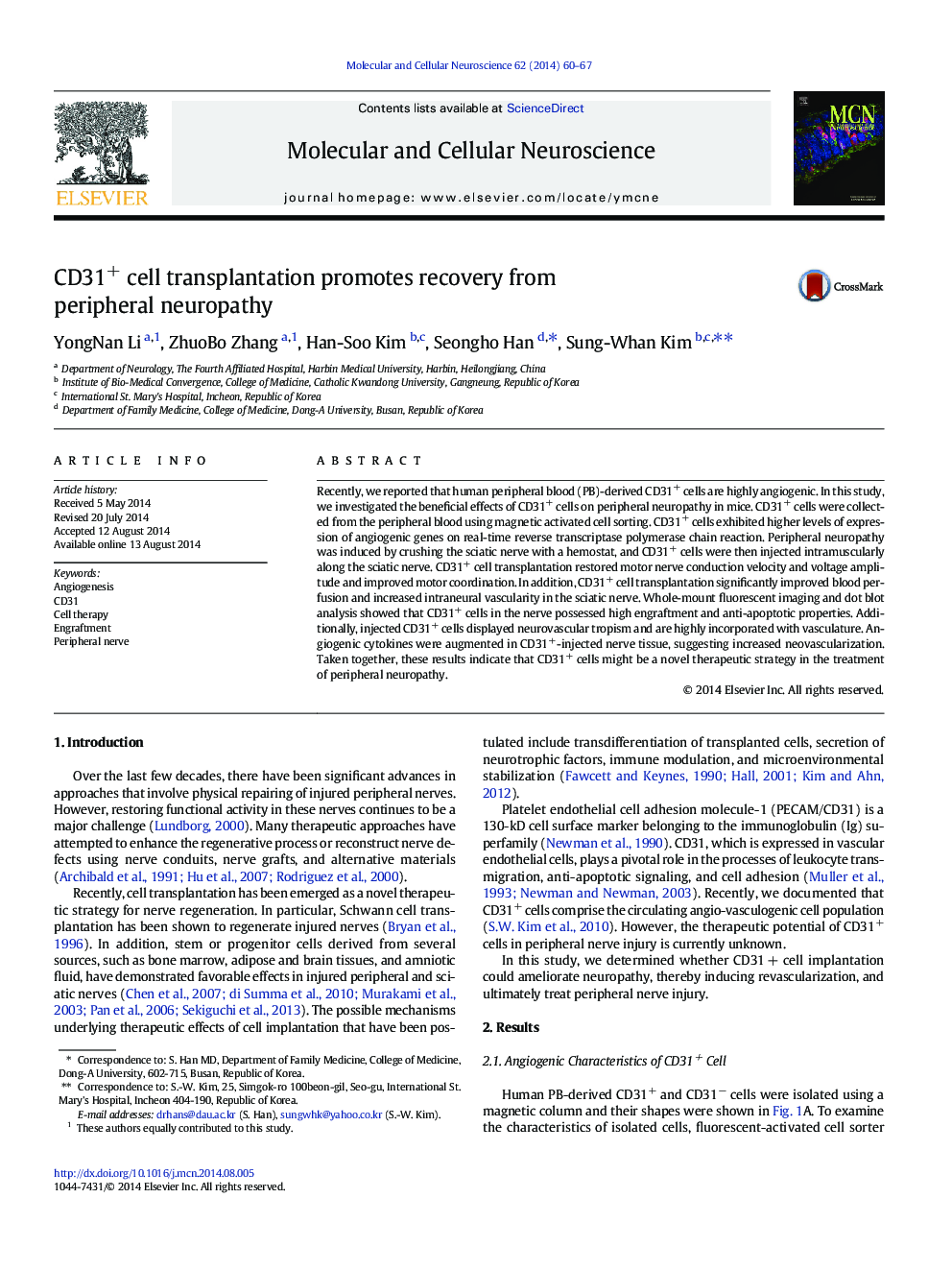| Article ID | Journal | Published Year | Pages | File Type |
|---|---|---|---|---|
| 2198449 | Molecular and Cellular Neuroscience | 2014 | 8 Pages |
Abstract
Recently, we reported that human peripheral blood (PB)-derived CD31+ cells are highly angiogenic. In this study, we investigated the beneficial effects of CD31+ cells on peripheral neuropathy in mice. CD31+ cells were collected from the peripheral blood using magnetic activated cell sorting. CD31+ cells exhibited higher levels of expression of angiogenic genes on real-time reverse transcriptase polymerase chain reaction. Peripheral neuropathy was induced by crushing the sciatic nerve with a hemostat, and CD31+ cells were then injected intramuscularly along the sciatic nerve. CD31+ cell transplantation restored motor nerve conduction velocity and voltage amplitude and improved motor coordination. In addition, CD31+ cell transplantation significantly improved blood perfusion and increased intraneural vascularity in the sciatic nerve. Whole-mount fluorescent imaging and dot blot analysis showed that CD31+ cells in the nerve possessed high engraftment and anti-apoptotic properties. Additionally, injected CD31+ cells displayed neurovascular tropism and are highly incorporated with vasculature. Angiogenic cytokines were augmented in CD31+-injected nerve tissue, suggesting increased neovascularization. Taken together, these results indicate that CD31+ cells might be a novel therapeutic strategy in the treatment of peripheral neuropathy.
Related Topics
Life Sciences
Biochemistry, Genetics and Molecular Biology
Cell Biology
Authors
YongNan Li, ZhuoBo Zhang, Han-Soo Kim, Seongho Han, Sung-Whan Kim,
